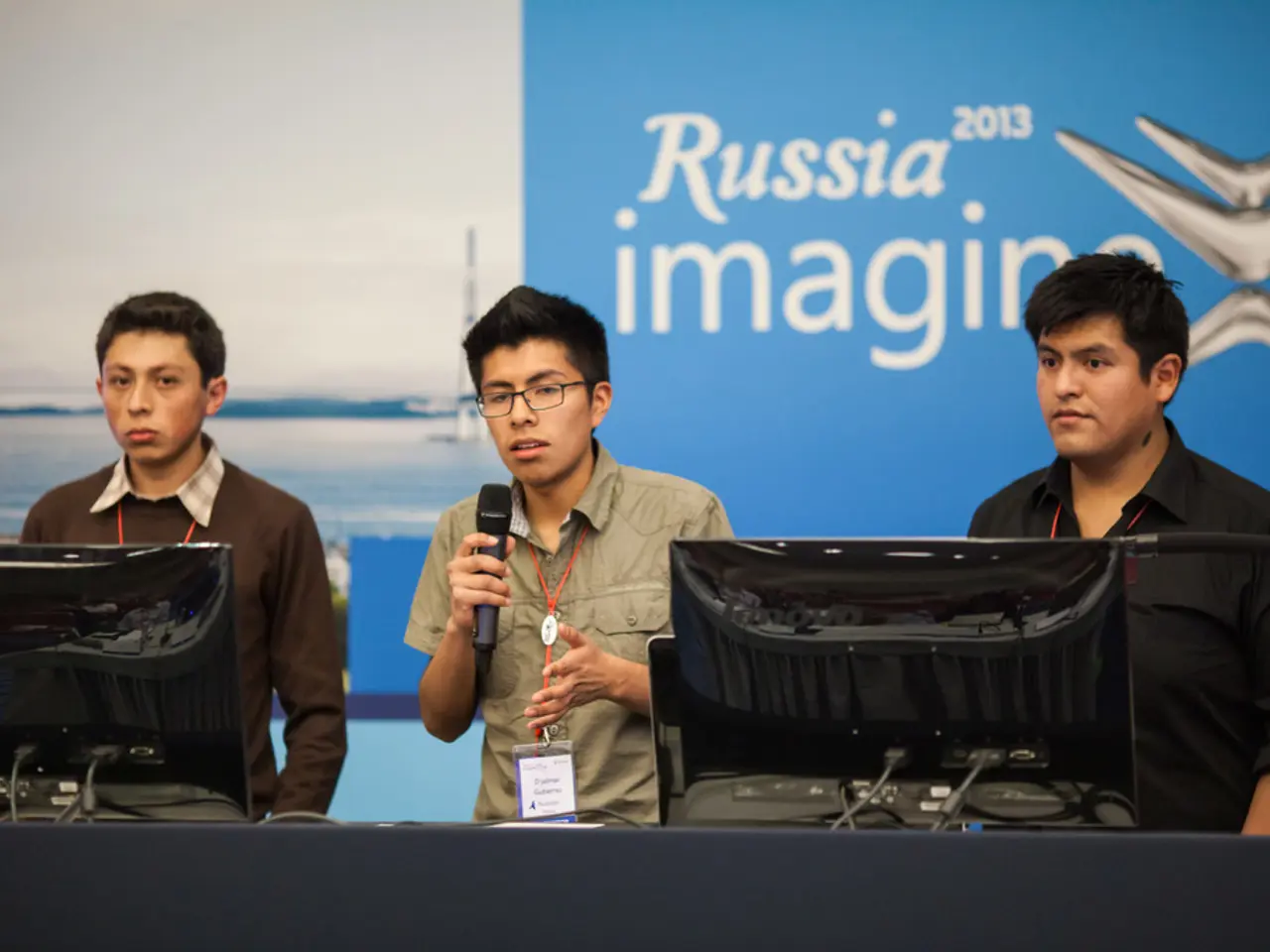Germany's Second "Russian" Generation: A Diverse Portrayal
In the multicultural landscape of Germany, the identities and values of second-generation migrants of Russian heritage, often referred to as "Russian Germans," are a fascinating study in cultural negotiation and societal integration. These individuals, shaped by experiences of integration, social engagement, and cultural exchange within Germany, embody a unique blend of German and Russian cultural influences.
Dr. Felix Krawatzek, a research associate at the Zentrum für Osteuropaforschung (ZOiS), heads the research focus "Youth and Generational Change" and the ERC-funded project "Moving Russia(ns): Transmission of Memories Across Generations Abroad and at Home (MoveMeRU)". His research reveals that many second-generation Russian Germans are actively engaged in social and civic life in Germany. For instance, ethnographic research documents Russian Germans who work full-time or voluntarily as administrative counsellors for Ukrainian refugees, demonstrating a commitment to ethical citizenship and active participation in societal processes considered important in Germany.
These migrants are often stereotyped negatively in public discourse as right-wing voters or supporters of Russian political positions. However, research shows a far more differentiated picture. Their social involvement broadens their political agency and suggests a depoliticized, ethical citizen role that transcends simplistic political labels.
The identities of these individuals reveal a blending of German and Russian cultural expectations. Practices such as gift-giving in administrative contexts reflect an "uncanny" intimacy stemming from the intersection of German institutional norms and post-Soviet cultural expectations. This interplay exemplifies how their identities incorporate elements from both backgrounds.
Many see their role in social work and community engagement as part of contributing to the "common good," highlighting values of responsibility and solidarity that align with German concepts of citizenship, yet informed by their Russian heritage. While broader migrant experiences in Germany sometimes involve challenges such as social exclusion or discrimination, the specifically studied group of Russian Germans in Bavaria shows that second-generation migrants can and do adopt active, socially integrative roles that reflect combined cultural values.
Nina, an interviewee, is a highly educated late resettler whose family is spread across the globe. She navigates between the state narratives of Germany, Ukraine, and Russia to articulate her own position. She expresses a desire to find a "middle way" between different perspectives, particularly on questions of gender roles and minority rights. Aware of the cultural and religious tensions within her family, she is proud of the many perspectives she encounters.
However, not all interviewees share this nuanced approach. A small portion express a strong sense of belonging to Russia, sharing a conservative political and social outlook. Some, like Mila and Victor, are critical of Western gender debates and feel that the German society is increasingly unsafe for women. The term "lying press" is frequently used in German media to spread conspiracy theories, which may contribute to this sentiment.
Sophia Winkler, another research associate at ZOiS, is pursuing her doctorate on social media and the identity of young Russians abroad, also part of the ERC-funded project MoveMeRU. Her research may provide further insights into the complex political and societal views of this group.
In conclusion, the identities of second-generation Russian Germans in Germany are a fascinating study in cultural negotiation and societal integration. They embody a hybrid identity that merges German societal expectations and participatory citizenship with Russian cultural norms. Their political and societal views tend toward active social engagement, ethical civic participation, and nuanced rejection of reductive stereotypes, illustrating a sophisticated blend of German and Russian influences in their identities and values.
- Dr. Felix Krawatzek's research at Zentrum für Osteuropaforschung (ZOiS) shows that many second-generation Russian Germans actively participate in social and civic life in Germany, as demonstrated by their work with Ukrainian refugees.
- The identities of second-generation Russian Germans are a blend of German and Russian cultural influences, as shown in practices like gift-giving in administrative contexts.
- While some stereotype second-generation Russian Germans as right-wing voters or supporters of Russian political positions, research reveals a more differentiated picture with a depoliticized, ethical citizen role that transcends simplistic political labels.
- Many Russian Germans see their role in social work and community engagement as contributing to the "common good," aligning with German concepts of citizenship while also being informed by their Russian heritage.
- Nina, a highly educated interviewee, navigates between the state narratives of Germany, Ukraine, and Russia to articulate her own position, expressing a desire for a "middle way" between different perspectives on issues like gender roles and minority rights.
- While most interviewees have a nuanced approach, a small portion express a strong sense of belonging to Russia, sharing a conservative political and social outlook, and feel that German society is increasingly unsafe for women, with Mila and Victor being critical of Western gender debates.
- Sophia Winkler, another research associate at ZOiS, is investigating social media and the identity of young Russians abroad as part of the ERC-funded project MoveMeRU, aiming to provide further insights into the political and societal views of this group.
- The identities and values of second-generation migrants of Russian heritage, or "Russian Germans," in Germany are a fascinating study in cultural negotiation and societal integration, embodying a hybrid identity that merges German societal expectations, participatory citizenship, and social engagement with Russian cultural norms, political views, and values.




